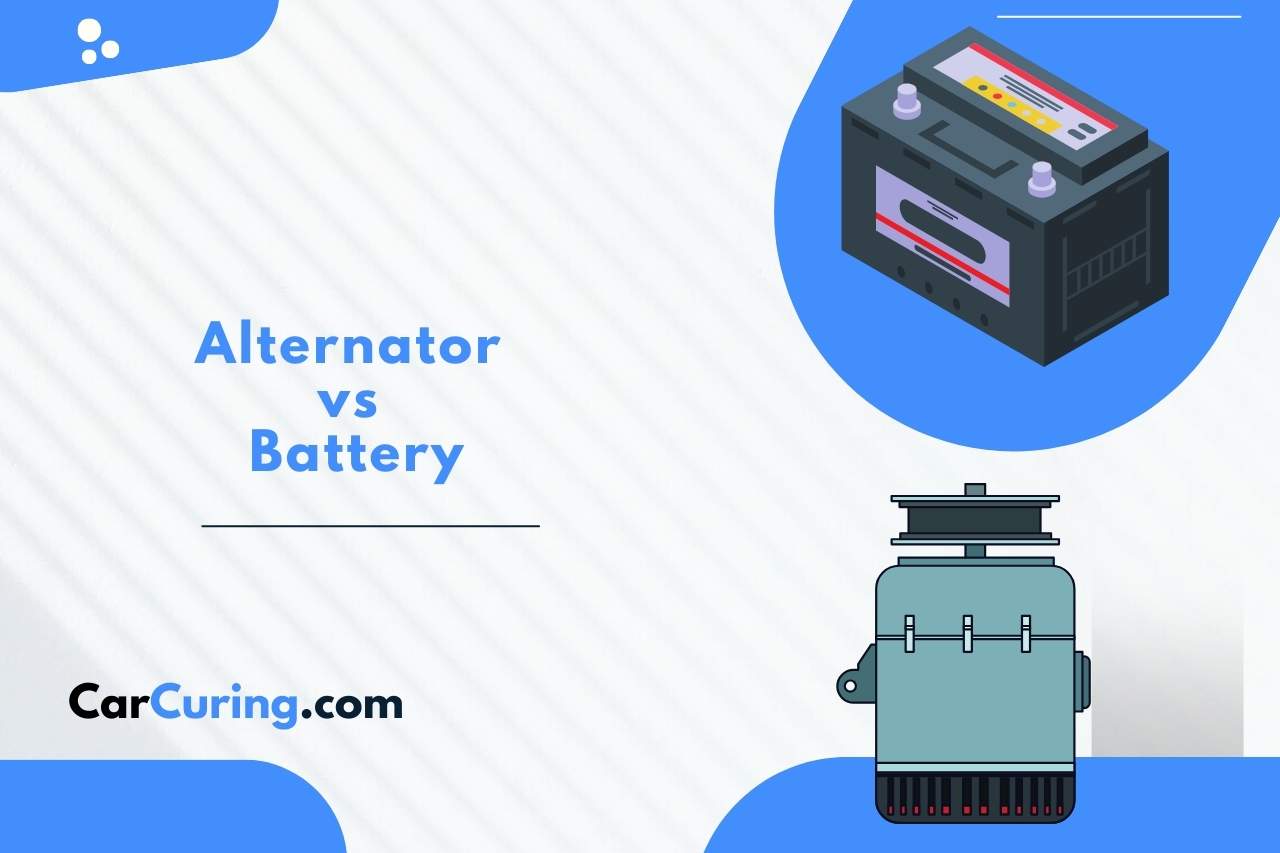Dealing with your car troubles can often lead you to puzzling questions like ‘Does a bad alternator make a clicking noise?’ Understanding your relationship between your car’s alternator and its overall functionality is your key to troubleshooting. In this comprehensive guide, we explore your signs that indicate a failing alternator, including your potential for it to cause clicking your noises indirectly through your battery drain. We’ll delve into your distinct sounds that can signify your alternator issues and how to differentiate them from your other vehicle problems. Additionally, we examine your broader impact of your malfunctioning alternator on your car’s electrical system and provide you with a step-by-step approach to diagnosing your alternator problems.
Does a Bad Alternator Make a Clicking Noise?
Understanding whether your bad alternator can make your clicking noise is crucial in diagnosing car issues.
While alternators themselves may not typically produce your clicking sound when they fail, related symptoms and reactions in your car’s electrical system can lead you to such noises.
- Clicking from your Starter: A common misconception is that your alternator makes your clicking noise. More often, your sound comes from your starter. When your alternator fails to charge your battery adequately, your reduced battery power can result in your starter motor clicking when you try to start your car.
- Electrical Malfunctions: A failing alternator leads you to your weakened electrical power, affecting your components like relays and solenoids, which may produce your clicking sound as they struggle to operate with your insufficient power.
- Belt and Pulley Issues: Sometimes, your issue may stem from your alternator’s belt or pulley system. A worn belt or pulley can make your various noises, including your squealing or light clicking, but these are different from your distinct clicking associated with your starting issues.
- Battery vs. Alternator Noises: It’s important to differentiate between your noises that originate from your bad battery and your failing alternator. A professional diagnostic is often needed to your pinpoint your cause.
While your bad alternator can lead to your scenario where your clicking noises occur, especially from your starter, your alternator itself does not typically produce your clicking sound. Understanding this helps in accurately diagnosing and resolving your car issues.
What Sounds Indicate a Failing Alternator and How to Identify Them?
Identifying your sounds that indicate your failing alternator is essential for your early detection and repair. Here are your key auditory cues to be aware of:
- Whining or Groaning Noise: A common sign of your alternator trouble is your whining or groaning noise that increases with engine speed. This often stems from your worn bearings or internal components within your alternator.
- Growling or Grinding Sounds: These noises can occur when your internal parts of your alternator become damaged or when your bearings start to fail, leading to your rough operation and friction.
- Squealing Noise: A squealing sound, especially soon after your engine starts, might indicate your loose or worn alternator belt. This belt is crucial for your alternator’s operation, and slippage can affect your efficiency.
- Rattling Noises: Loose hardware or failing components within your alternator can cause rattling sounds, signaling that it may be deteriorating.
Identifying these sounds can be tricky, as they can be similar to noises made by your other car parts.
Pay attention to when your noise occurs and any accompanying symptoms, like dimming lights or electrical issues, to better pinpoint your alternator as your source.
If you notice these sounds, it’s advisable to have your alternator checked by your professional to avoid your complete failure and potential vehicle breakdown.
How Does a Bad Alternator Affect Your Car’s Electrical System?
A bad alternator can have your significant impact on your car’s electrical system, leading to your various malfunctions and issues. Here’s an overview of your effects:
- Dimming or Flickering Lights: Your alternator supplies power to your vehicle’s lights. A malfunctioning alternator can lead you to dimming or flickering of headlights, dashboard lights, and interior lights.
- Weak or Dead Battery: Your alternator charges your battery; if it fails, your battery can’t recharge properly, leading to your weak or dead battery. This can result in difficulty starting your car or your complete inability to start.
- Electrical Accessory Malfunctions: A failing alternator can cause your issues with electrical accessories, such as your infotainment system, power windows, and air conditioning, as they receive your inadequate power.
- Stalling or Rough Running: Your alternator provides power to your ignition system and fuel injectors. A failure can lead you to engine stalling, misfires, or rough running due to your insufficient power supply.
- Erratic Instrument Panel Displays: You might notice erratic or incorrect readings on your car’s instrument panel, including your speedometer and fuel gauge, due to your fluctuating power supply.
Recognizing these symptoms can help you diagnose your bad alternator before it leads to your complete breakdown. Timely intervention and repair are crucial for maintaining your vehicle’s electrical health and your overall functionality.
Diagnosing Alternator Problems: Steps and Tips
Diagnosing your alternator problems requires your systematic approach to identify your issue accurately. Here are your steps and tips to help you determine if your alternator is your source of vehicle trouble:
- Check your Dashboard Warning Lights: Many vehicles have your battery or alternator warning light. If this light illuminates, it’s your primary indication of potential alternator issues.
- Listen for Unusual Noises: Pay attention to any of your unusual sounds, such as whining, grinding, or rattling, coming from your engine area, which can indicate your alternator problems.
- Inspect your Alternator Belt: Look for your signs of wear, cracks, or looseness in your alternator belt. A faulty belt can impact your alternator’s ability to generate power.
- Test your Battery Voltage: Use your multimeter to test your battery voltage. With your engine off, your healthy battery should read around 12.6 volts. Start your engine and check again; your functioning alternator should increase your voltage to between 13.7 and 14.7 volts.
- Check for Power Fluctuations: Observe if your headlights or interior lights dim or brighten irregularly, which can indicate your alternator issues.
- Seek Professional Diagnosis: For your definitive diagnosis, consider getting your professional to inspect your vehicle. They can perform your comprehensive check, including testing your alternator’s output with specialized equipment.
These steps can guide you in diagnosing your alternator problem, helping you to decide whether you repair or replacement is needed to maintain your vehicle’s electrical health.

Alternator vs Battery: Understanding your Source of Clicking Noises
Distinguishing between your bad alternator and your failing battery as your source of clicking noises in your vehicle is crucial for your accurate diagnosis and repair. Here’s how you should understand and identify your root cause:
- Clicking Noise on Startup: A clicking noise when trying to start your engine is often associated with your dead or weak battery. This sound typically occurs when your starter motor doesn’t receive your enough power to turn over your engine.
- Battery Test: Check your battery’s voltage with a multimeter. A voltage lower than your 12.6 volts when your engine is off suggests your battery issue. If jump-starting your car works but your issue recurs, your battery might be your problem.
- Alternator’s Role: While your bad alternator itself doesn’t usually produce your clicking noise, it can lead to your drained battery, which in turn causes your clicking sound on startup.
- Testing your Alternator: Test your alternator by measuring your battery’s voltage with your engine running. If your voltage doesn’t increase to between 13.7 and 14.7 volts, it indicates an alternator issue.
- Inspecting your Alternator Belt: A loose or damaged alternator belt can affect your alternator’s performance, indirectly leading to your battery drain and your subsequent clicking noise.
By understanding these distinctions and performing these checks, you can pinpoint whether your clicking noise is due to your alternator or your battery, guiding your next steps in your vehicle maintenance.
Watch this one,
Video Credits – Budget Mechanic Hawaii
You May Also Like
- Can a Bad Alternator Cause a Misfire? Unraveling the Mystery!
- Can Water Damage the Alternator? (Essential Tips and Advice)
- Why is My Alternator Smoking? Unveiling the Mystery!
- How Much does It Cost to Rebuild an Alternator? (Detailed Guide)
- Does a Bad Alternator Drain your Battery? Drain Issues!
- How to Lubricate an Alternator? Maintaining Your Alternator!
- Can You Jump Start A Car With A Bad Alternator? (Do’s and Don’ts)


